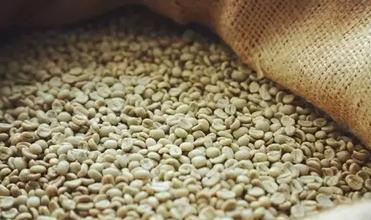Guatemala Flower God Coffee Planting Situation Location Climate Elevation Profile

Coffee was introduced to Guatemala in 1750 by Father Jesuit, and German colonists developed the coffee industry in the late 19th century. Today, most of the coffee industry is produced in the south of the country. There are seven major coffee producing areas in Guatemala, and the coffee flavor produced in each producing area is different. However, in summary, the coffee in Guatemala presents a mild and mellow overall texture, with elegant aroma and special and pleasant acidity similar to fruit acid. It has become the aristocrat of coffee, among which Antigua Classic coffee is deeply recommended by coffee connoisseurs around the world.
Antigua is the oldest and most beautiful city in America. As early as 1543, Antigua was the colonial capital of Central America, and the Spanish government was also located here. After a major earthquake in 1773, Antigua was completely destroyed, so the capital was moved to Guatemala. Antigua City is about 40 kilometers west of Guatemala City. Colonial buildings were destroyed by earthquakes. After the earthquake, the original state was preserved as a whole. It can be said to be a living historical museum.
Guatemala coffee has a strong aroma, even if you don't drink it, just smelling it is already a pleasure. Antigua coffee has a rich and velvety body, rich and lively aroma, and fine acidity. When the seductive aroma lingers on your tongue, it implies an indescribable mystery. On the first sip, you may feel bland, but as the coffee cools, you'll find it slightly sweet and be pleasantly surprised by its depth.
Antigua coffee is sought after by most coffee lovers because of its distinctive aroma. Because it is planted on the belly of volcanoes, it can retain its own characteristics more than Costa Rica, mainly because it has more geographical and climatic advantages than Costa Rica. Guatemala is located in the tropics, but due to its high altitude, the climate is mild and subtropical. Coffee trees bloom and bear fruit slower than coffee trees in other parts of the world under the influence of this climate. However, the mild climate combined with fertile soil creates an excellent environment for growing coffee.
These Mayan-run coffee industries once made Guatemala's economy prosperous and occupied a dominant position in the national economy. Unfortunately, however, the political situation in Guatemala is not conducive to these coffee growers. High output is usually a sign of overall economic prosperity in a country. However, coffee production in Guatemala has declined relatively, to only 700 kg/ha, compared with 900 kg/ha in El Salvador and a staggering 1700 kg/ha in Costa Rica. Guatemala's coffee export trade is controlled by private companies, but the National Coffee Council controls other sectors of the coffee industry
Antigua is the oldest and most beautiful city in America. As early as 1543, Antigua was the colonial capital of Central America, and the Spanish government was also located here. After the great earthquake of 1773, the volcano destroyed the original capital in an instant, taking away all the prosperity and beauty overnight. Antigua was completely destroyed, so the capital was moved to Guatemala. After this transformation of the mountain city, more than 200 years of brilliance disappeared, Antigua no longer strutted. Antigua, now plain, is laboriously managed by the remaining Indians. These industrious and strong Indians became coffee producers later. They not only discovered Antigua coffee's rich and attractive unique smell, but also brought it to people all over the world. Each coffee bean in each producing area has its own characteristics. They also won a lot of international praise for Guatemala, especially Antigua. How perfectly coordinated its sour, sweet and mellow texture is; Add a hint of smoke, emphasize its mystery, and you will have reason not to look for alternatives everywhere after tasting.
Guatemala coffee beans are mostly cultivated in volcanic soils at high altitudes, belonging to the highest Arabica variety. Due to the long ripening period, the beans are medium and dense (Guatemala coffee beans are graded not by particle size, but by the number of defects), and the beans are dark turquoise in color. Aroma, mellow, sweet and fresh pleasant unique acidity is its characteristic, because the aroma and taste of coffee beans are hidden in its acidity. Therefore, coffee beans with this characteristic can be called superior coffee beans. Name Roasting Degree Taste Characteristics Few places in the world offer the variety of quality coffee beans produced in Guatemala. Guatemala coffee beans are excellent because of the unique conditions of their origin, including different climatic changes in each region, rich volcanic soil, abundant natural water resources, high altitude mountains and shady and humid forests
Guatemala coffee has a strong aroma, even if you don't drink it, just smelling it is already a pleasure. Antigua coffee has a rich and velvety body, rich and lively aroma, and fine acidity. When the seductive aroma lingers on your tongue, it implies an indescribable mystery. On the first sip, you may feel bland, but as the coffee cools, you'll find it slightly sweet and be pleasantly surprised by its depth.
Antigua coffee is sought after by most coffee lovers because of its distinctive aroma. Because it is planted on the belly of volcanoes, it can retain its own characteristics more than Costa Rica, mainly because it has more geographical and climatic advantages than Costa Rica. Guatemala is located in the tropics, but due to its high altitude, the climate is mild and subtropical. Coffee trees bloom and bear fruit slower than coffee trees in other parts of the world under the influence of this climate. However, the mild climate and fertile soil make for an excellent environment for growing coffee. Guatemala produces one of the best coffees in the world, because Guatemala has a volcanic terrain at high altitude, which is the ideal place to grow coffee. The tasters prefer this blend of flavoured coffee with a spicy flavour to other varieties. The extra-hard coffee beans here are rare good coffee, it is full of particles, delicious, balanced acidity. Guatemala has also received attention for its giant coffee beans.
Important Notice :
前街咖啡 FrontStreet Coffee has moved to new addredd:
FrontStreet Coffee Address: 315,Donghua East Road,GuangZhou
Tel:020 38364473
- Prev

A brief introduction to the Market Price of planting Coffee varieties in Guatemala according to Tiangua Flower God Coffee
The coffee industry, run by the Mayans, once boomed Guatemala's economy and dominated the national economy. Unfortunately, the political situation in Guatemala is not good for these coffee growers. High output is usually a sign of a country's overall economic prosperity. However, coffee production in Guatemala has declined relatively, at only 700 kilograms per hectare.
- Next

A brief introduction to the treatment method of grinding degree and roasting degree of Guatemala Antigua coffee
Caption: this is a particularly elegant and complex coffee. This coffee with delicate acidity balances the subtle texture of cocoa powder with soft spices. Processing: washing method. Location: Guatemala, the westernmost country in Central America, bordering Mexico, Belize, Honduras and El Salvador. Antigua is in the south-central part of the country. Class
Related
- Detailed explanation of Jadeite planting Land in Panamanian Jadeite Manor introduction to the grading system of Jadeite competitive bidding, Red bid, Green bid and Rose Summer
- Story of Coffee planting in Brenka region of Costa Rica Stonehenge Manor anaerobic heavy honey treatment of flavor mouth
- What's on the barrel of Blue Mountain Coffee beans?
- Can American coffee also pull flowers? How to use hot American style to pull out a good-looking pattern?
- Can you make a cold extract with coffee beans? What is the right proportion for cold-extracted coffee formula?
- Indonesian PWN Gold Mandrine Coffee Origin Features Flavor How to Chong? Mandolin coffee is American.
- A brief introduction to the flavor characteristics of Brazilian yellow bourbon coffee beans
- What is the effect of different water quality on the flavor of cold-extracted coffee? What kind of water is best for brewing coffee?
- Why do you think of Rose Summer whenever you mention Panamanian coffee?
- Introduction to the characteristics of authentic blue mountain coffee bean producing areas? What is the CIB Coffee Authority in Jamaica?

